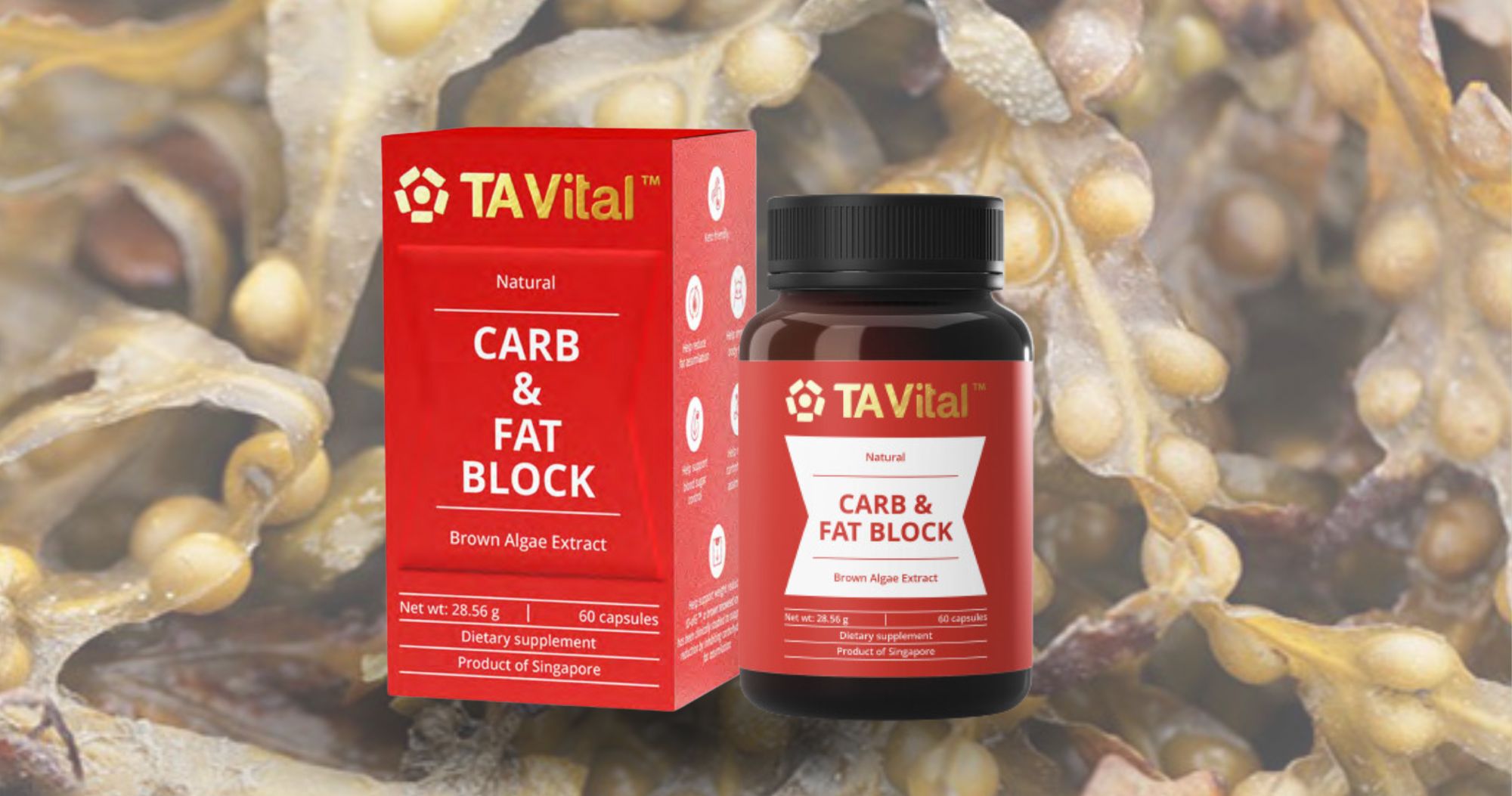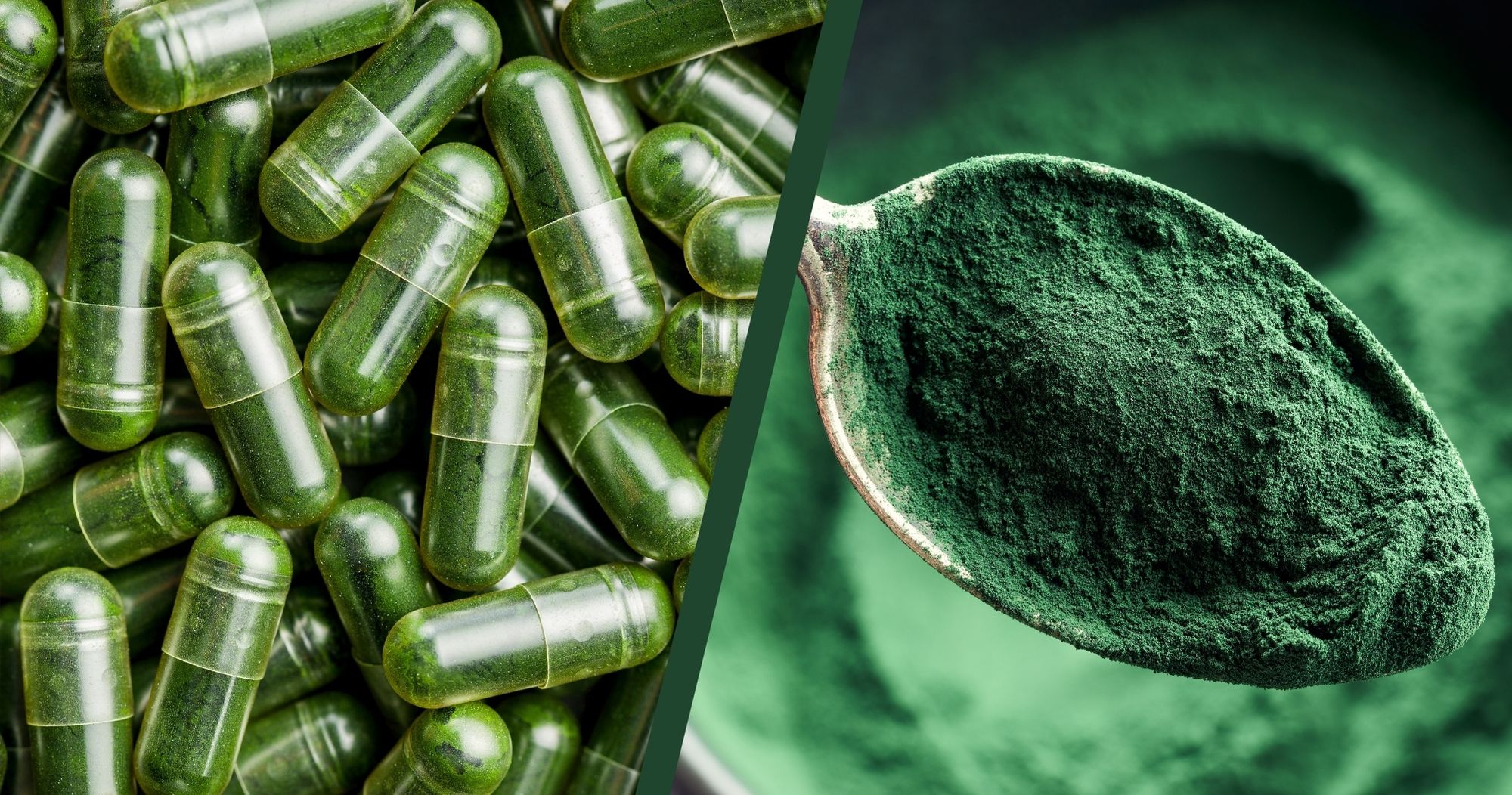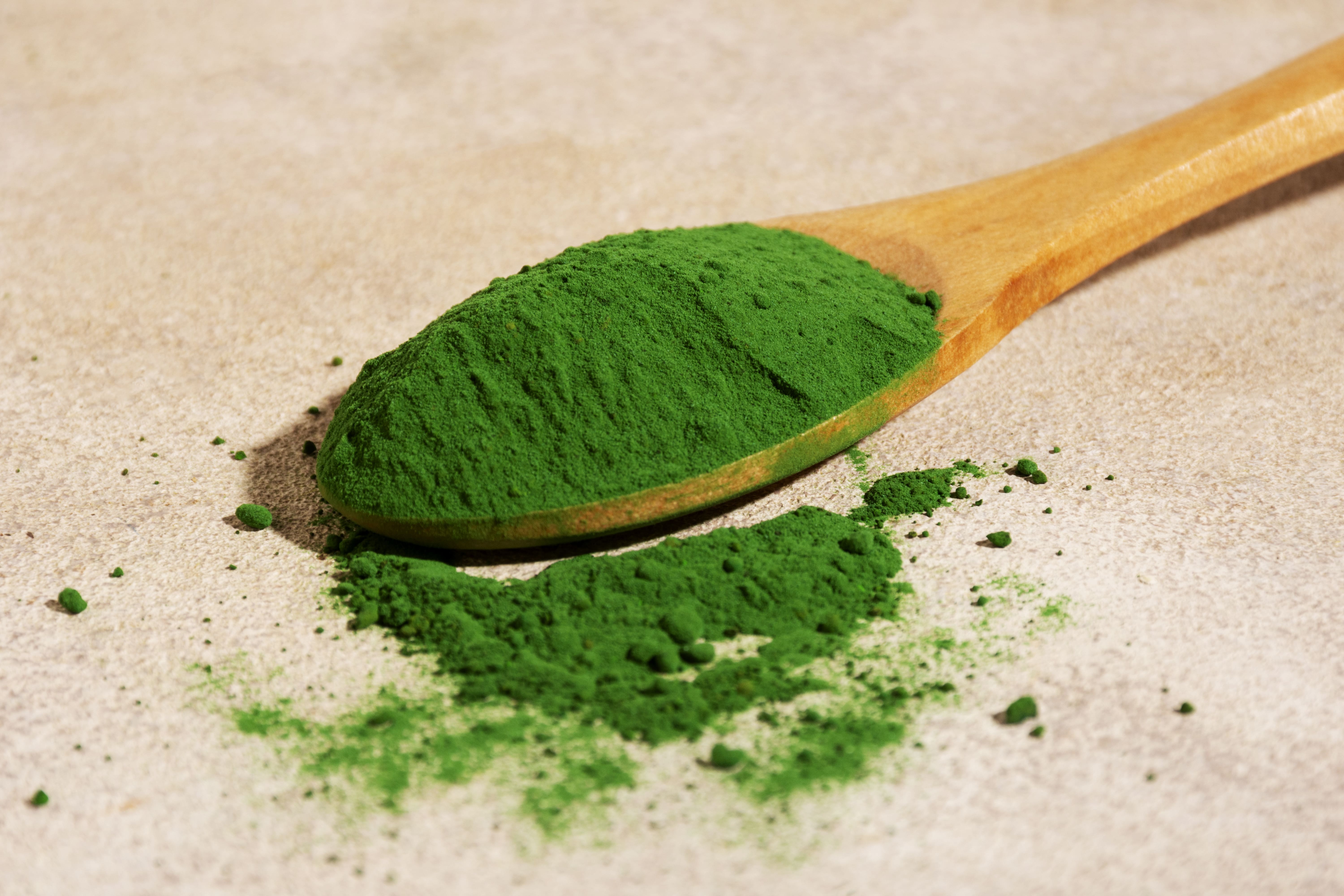Spirulina - a diverse source of nutrients and health benefits. Helps with antioxidants, strengthens the immune system, and improves cardiovascular health.

Spirulina is a type of blue-green algae known for its high nutritional content and numerous health benefits. Considered a superfood, Spirulina has been used for thousands of years and is becoming increasingly popular in modern diets. Here are some key health benefits of Spirulina, supported by scientific research.

Spirulina contains a large amount of high-quality protein, including all essential amino acids. Research shows that spirulina consists of about 60-70% protein, more than most other food sources. Additionally, Spirulina is rich in vitamins B1, B2, B3, as well as minerals like iron, magnesium, and potassium.
Spirulina is very rich in antioxidants, particularly phycocyanin — a compound that helps combat free radicals and reduce inflammation. These antioxidants can protect the body from cellular damage and lower the risk of chronic diseases such as heart disease and cancer.

A study shows that adding spirulina to the diet can enhance the immune system by increasing the production of antibodies and white blood cells, helping the body more effectively fight bacteria and viruses.
Spirulina can help lower bad cholesterol (LDL) levels and increase good cholesterol (HDL) levels, thereby improving heart health. A study found that daily consumption of Spirulina significantly reduced total cholesterol and triglyceride levels in the blood.

Spirulina is low in calories but highly nutritious, making it an ideal food for those looking to lose weight. Addition of Spirulina to the daily diet can help maintain a feeling of fullness for longer, reducing the need for snacking and aiding in better weight management.In summary, Spirulina is not only an excellent source of nutrition but also offers numerous important health benefits. Incorporating Spirulina into your daily diet can improve your overall health and quality of life.
1. NASA. (n.d.). Carbon dioxide concentration | NASA Global Climate Change. Climate Change: Vital Signs of the Planet. https://climate.nasa.gov/vital-signs/carbon-dioxide/?intent=121#:~:text=Carbon%20dioxide%20in%20the%20atmosphere,in%20less%20than%20200%20years.
2. Climate change: atmospheric carbon dioxide. (2024, April 9). NOAA Climate.gov. https://www.climate.gov/news-features/understanding-climate/climate-change-atmospheric-carbon-dioxide#:~:text=Since%20the%20middle%20of%20the,the%20Global%20Carbon%20Budget%202023.
3. Calvin, K., Dasgupta, D., Krinner, G., Mukherji, A., Thorne, P., Trisos, C. H., Romero, J., Aldunce, P., Barrett, K., Blanco, G., Cheung, W. W. L., Connors, S., Denton, F., Diongue-Niang, A., Dodman, D., Garschagen, M., Geden, O., Hayward, B., Jones, C. D., . . . Ha, M. (2023). IPCC, 2023: Climate change 2023: Synthesis report. Contribution of working groups I, II and III to the sixth assessment report of the intergovernmental panel on climate change [Core Writing Team, H. Lee and J. Romero (eds.)]. IPCC, Geneva, Switzerland. https://doi.org/10.59327/ipcc/ar6-9789291691647
4. Dodd, M. S., Papineau, D., Grenne, T., Slack, J. F., Rittner, M., Pirajno, F., O’Neil, J., & Little, C. T. S. (2017). Evidence for early life in earth’s oldest hydrothermal vent precipitates. Nature, 543(7643), 60–64. https://doi.org/10.1038/nature21377
.jpg)
Next-Generation Industrial Real Estate: Attracting High-Quality FDI Through Symbiotic Mechanisms and Service-Oriented Governance
.jpg)
Next-Generation Industrial Real Estate: Attracting High-Quality FDI Through Symbiotic Mechanisms and Service-Oriented Governance

Supporting a Functioning Immune System with Spirulina

Supporting a Functioning Immune System with Spirulina

Healthy Industry Trends 2025-2026: When Health Becomes a Living Ecosystem

Healthy Industry Trends 2025-2026: When Health Becomes a Living Ecosystem

Spirulina and Sustainability: A Nutrient for a Sustainable Future

Spirulina and Sustainability: A Nutrient for a Sustainable Future

Vietnamese health supplement firm taps brown algae extract for weight control

Vietnamese health supplement firm taps brown algae extract for weight control
.jpg)
Spirulina Capsules: The Secret to Living Healthy, Beautiful and Sustainable
.jpg)
Spirulina Capsules: The Secret to Living Healthy, Beautiful and Sustainable

What is ESG The importance of enterprise ESG in sustainable development

What is ESG The importance of enterprise ESG in sustainable development

Is spirulina (microalgae) or seaweed (macroalgae) better for health?

Is spirulina (microalgae) or seaweed (macroalgae) better for health?

Secrets of skin beauty, blurring and anti-aging from spirulina and red algae

Secrets of skin beauty, blurring and anti-aging from spirulina and red algae

Green transition with agriculture: A sustainable path for Vietnam

Green transition with agriculture: A sustainable path for Vietnam
%205%20l%E1%BB%A3i%20%C3%ADch%20n%E1%BB%95i%20b%E1%BA%ADt%20cho%20s%E1%BB%A9c%20kh%E1%BB%8Fe%20ng%C6%B0%E1%BB%9Di%20hi%E1%BB%87n%20%C4%91%E1%BA%A1i.jpg)
Domestic Japanese algae (yellow algae): 5 outstanding benefits for modern human health
%205%20l%E1%BB%A3i%20%C3%ADch%20n%E1%BB%95i%20b%E1%BA%ADt%20cho%20s%E1%BB%A9c%20kh%E1%BB%8Fe%20ng%C6%B0%E1%BB%9Di%20hi%E1%BB%87n%20%C4%91%E1%BA%A1i.jpg)
Domestic Japanese algae (yellow algae): 5 outstanding benefits for modern human health
.jpg)
Spirulina Face Mask: Natural Skincare for Bright, Youthful, and Healthy Skin
.jpg)
Spirulina Face Mask: Natural Skincare for Bright, Youthful, and Healthy Skin

Spirulina - golden nutrition for the full development of the child

Spirulina - golden nutrition for the full development of the child

Reveal how to drink spirulina to beautify the skin and repel oxidationz

Reveal how to drink spirulina to beautify the skin and repel oxidationz

TA Vital Showcases at Food Tech Day 2025, RMIT Vietnam

TA Vital Showcases at Food Tech Day 2025, RMIT Vietnam

TA Spirulina Capsules: The Secret to Living Healthy, Beautiful and Sustainable

TA Spirulina Capsules: The Secret to Living Healthy, Beautiful and Sustainable

What are the benefits of Japanese spirulina for the elderly?

What are the benefits of Japanese spirulina for the elderly?

What Is Spirulina? Health & Beauty Benefits of the Green Superfood

What Is Spirulina? Health & Beauty Benefits of the Green Superfood

Value from sludge: CHITOSE partners TA Vital to turn industrial waste into custom compost for agriculture

Value from sludge: CHITOSE partners TA Vital to turn industrial waste into custom compost for agriculture

How Do Algae Live? Growth Conditions, Nutrition, and the Benefits of Spirulina

How Do Algae Live? Growth Conditions, Nutrition, and the Benefits of Spirulina
.png)
TA Vital and CHITOSE Bio Evolution Bring Industrial-Scale AI Composting to Vietnam
.png)
TA Vital and CHITOSE Bio Evolution Bring Industrial-Scale AI Composting to Vietnam
.jpg)
When Green Technology Becomes the New “Passport” for Global Integration
.jpg)
When Green Technology Becomes the New “Passport” for Global Integration
.jpg)
Top 5 Spirulina Uses: Superfoods for Health & Beauty
.jpg)
Top 5 Spirulina Uses: Superfoods for Health & Beauty

10 Green Solutions to Drive Sustainable Transformation for a Better Future

10 Green Solutions to Drive Sustainable Transformation for a Better Future

How to Take Spirulina for Clear Skin and Acne-Free Beauty

How to Take Spirulina for Clear Skin and Acne-Free Beauty

Green Transformation – A Strategic Path for Businesses and Nations

Green Transformation – A Strategic Path for Businesses and Nations

Golden Spirulina Recipes – Nutrition for Vegetarians

Golden Spirulina Recipes – Nutrition for Vegetarians

TA Vital and Chitose Bio Evolution, exchange signed agreement to jointly develop ESG solutions for Vietnam Market

TA Vital and Chitose Bio Evolution, exchange signed agreement to jointly develop ESG solutions for Vietnam Market

TA Vital and RMIT Join Forces to Create Sustainable Microalgae-Based Foods

TA Vital and RMIT Join Forces to Create Sustainable Microalgae-Based Foods

Would using spirulina tablets or spirulina powder be healthier?

Would using spirulina tablets or spirulina powder be healthier?

The Roadmap to Green Transition: Why Businesses Must Act Now

The Roadmap to Green Transition: Why Businesses Must Act Now

Green Technology in Waste Management: A Key to the Green Transition

Green Technology in Waste Management: A Key to the Green Transition

Spirulina for Vegans: The Best Plant-Based Superfood for Complete Nutrition

Spirulina for Vegans: The Best Plant-Based Superfood for Complete Nutrition

Spirulina provides energy for daily sports activities

Spirulina provides energy for daily sports activities

Spirulina: Benefits, Dosage & How to Choose Products

Spirulina: Benefits, Dosage & How to Choose Products

Why are microalgae seen as a potential solution to food security?

Why are microalgae seen as a potential solution to food security?

Should I drink spirulina regularly? Instructions for the use of algae suitable for each subject for effectiveness

Should I drink spirulina regularly? Instructions for the use of algae suitable for each subject for effectiveness

What is green conversion? Role of algae in green transition

What is green conversion? Role of algae in green transition

TA Vital participates in Pickleball Charity Cup 2025: Spreading the spirit of “Giving is forever”

TA Vital participates in Pickleball Charity Cup 2025: Spreading the spirit of “Giving is forever”

After the merger of Long An - Tay Ninh: TA Vital welcomes the trend of eco-industry

After the merger of Long An - Tay Ninh: TA Vital welcomes the trend of eco-industry

TA Vital Periodically Inspects Production Plants According to GMP Standards — Commitment to Quality for Public Health

TA Vital Periodically Inspects Production Plants According to GMP Standards — Commitment to Quality for Public Health

TA VITAL AND RALLY PICKLEBALL COLLABORATE TO PROMOTE HOLISTIC WELLNESS THROUGH SPORTS AND NUTRITION

TA VITAL AND RALLY PICKLEBALL COLLABORATE TO PROMOTE HOLISTIC WELLNESS THROUGH SPORTS AND NUTRITION

TA VITAL and CHITOSE BIO EVOLUTION form strategic partnership for green transformation and scientific research

TA VITAL and CHITOSE BIO EVOLUTION form strategic partnership for green transformation and scientific research

Spirulina: Products that provide a sustainable source of protein-rich nutrition

Spirulina: Products that provide a sustainable source of protein-rich nutrition

Prodezi Eco-IP Partners with Chitose Group & TA Vital for Sustainable Development

Prodezi Eco-IP Partners with Chitose Group & TA Vital for Sustainable Development

Spirulina Supplements: Health Benefits and How to Use Effectively

Spirulina Supplements: Health Benefits and How to Use Effectively
.jpg)
Spirulina vs Kale vs Quinoa: What is the optimal nutritional choice?
.jpg)
Spirulina vs Kale vs Quinoa: What is the optimal nutritional choice?
%20(1).jpeg)
Spirulina Nutrients: Vitamins and Minerals Found in Spirulina
%20(1).jpeg)
Spirulina Nutrients: Vitamins and Minerals Found in Spirulina
.jpg)
Why Spirulina is considered the “superfood” of the future?
.jpg)
Why Spirulina is considered the “superfood” of the future?
.jpg)
Spirulina Spirulina: Health Secrets for All Ages in Modern Life
.jpg)
Spirulina Spirulina: Health Secrets for All Ages in Modern Life
.jpg)
Spirulina Spirulina: Natural Solution to Effectively Reduce Blood Fat
.jpg)
Spirulina Spirulina: Natural Solution to Effectively Reduce Blood Fat

The Long History of Spirulina Spirulina: From Ancient to Modern

The Long History of Spirulina Spirulina: From Ancient to Modern

Spirulina And Digestive Health: Natural Probiotics For The Gut

Spirulina And Digestive Health: Natural Probiotics For The Gut

Spirulina: A sustainable protein source for the future

Spirulina: A sustainable protein source for the future

Spirulina Algae: Solution to the Problem of Environmental Pollution and Water Purification

Spirulina Algae: Solution to the Problem of Environmental Pollution and Water Purification

Spirulina Spirulina - The secret to maintaining energy throughout the day

Spirulina Spirulina - The secret to maintaining energy throughout the day
.jpg)
Spirulina - Comparing the Utility of Algae Cultivation with Universal Agriculture
.jpg)
Spirulina - Comparing the Utility of Algae Cultivation with Universal Agriculture

Exciting Competition Moments and Cute Images at TA Vital Pickleball - Round Robin Series

Exciting Competition Moments and Cute Images at TA Vital Pickleball - Round Robin Series

Spirulina Helps Improve Endurance and Performance in Pickleball

Spirulina Helps Improve Endurance and Performance in Pickleball

Discover How To Use Spirulina In Extra Nutritious And Special Dishes

Discover How To Use Spirulina In Extra Nutritious And Special Dishes

Commercial Potential of Spirulina in the Food and Beverage Industry

Commercial Potential of Spirulina in the Food and Beverage Industry

The TA Vital Pickleball Tournament promotes a holistic wellness approach

The TA Vital Pickleball Tournament promotes a holistic wellness approach

Super Food Spirulina Spirulina For Sports Performance And Holistic Health

Super Food Spirulina Spirulina For Sports Performance And Holistic Health

Does Spirulina Improve Gut Health And Reduce Post-Workout Fatigue?

Does Spirulina Improve Gut Health And Reduce Post-Workout Fatigue?

Spirulina: A Super Food Full of Nutrition and Health Benefits

Spirulina: A Super Food Full of Nutrition and Health Benefits

Researchers in Europe turn to microscopic algae for answers to our environmental problems

Researchers in Europe turn to microscopic algae for answers to our environmental problems

Diving into the potential of microalgae for human health and environmental sustainability

Diving into the potential of microalgae for human health and environmental sustainability

Advantages of microalgae as a feed ingredient explored

Advantages of microalgae as a feed ingredient explored

Microalgae: The sustainable superfood saving the food system

Microalgae: The sustainable superfood saving the food system

Brunei algae factory to meet demand for alternative protein market

Brunei algae factory to meet demand for alternative protein market

Tabérumo: Fresh algae is incorporated into daily dietary consumption

Tabérumo: Fresh algae is incorporated into daily dietary consumption

Expert: Vietnam's top microbiologist and algae advocate Dr. Tien Duc

Expert: Vietnam's top microbiologist and algae advocate Dr. Tien Duc

Tapping the potential of seaweed to deliver sustainable nutrition

Tapping the potential of seaweed to deliver sustainable nutrition

Benefit of algae toward regulating blood pressure, body weight and endothelial function

Benefit of algae toward regulating blood pressure, body weight and endothelial function

IMPORTED AND DISTRIBUTED BY TA VITAL CO. LTD
Representative office address:
Centec Tower, 72-74 Nguyen Thi Minh Khai Street,
Xuan Hoa Ward, Ho Chi Minh City, Vietnam
info@tavital.com
(+84) 833 369 369
©2024 TA VITAL™. ALL RIGHTS RESERVED.